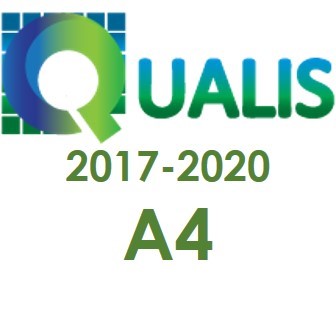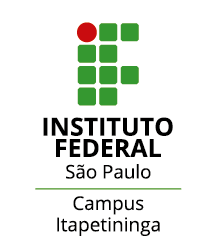El potencial de las redes de trabajo colaborativas para promover el desarrollo profesional de profesores
un estudio realizado en Portugal
Palabras clave:
Liderazgo docente; Trabajo colaborativo; Redes; Desarrollo profesional, Profesores.Resumen
Este artículo explora las opiniones de los profesores sobre el liderazgo y el potencial de las redes colaborativas para promover su desarrollo profesional. El estudio se basa en un estudio más amplio que tiene como objetivo analizar las condiciones para el desarrollo del liderazgo docente en circunstancias desafiantes. Los datos fueron recolectados através de cuestionarios con preguntas abiertas con 66 profesores de cinco escuelas portuguesas. Los resultados indican que el proceso de formación generó espacios de “compromiso” de los docentes con sus pares y con la vida diaria profesional, contribuyendo a fomentar el diálogo, la reflexión y la retroalimentación que pide y promueve una nueva reflexión.
Descargas
Citas
AVALOS, B. Teacher Professional Development in “Teaching and Teacher Education” over Ten Years. Teaching and Teacher Education: An International Journal of Research and Studies, v. 27, n.1, p.10–20, 2011.
BARDIN, L. Análise de conteúdo. Lisboa: Edições 70, 2009.
BOUCKAERT, M.; KOOLS, Q. Teacher Educators as Curriculum Developers: Exploration of a Professional Role. European Journal of Teacher Education, v.41, n.1, p.32–49, 2018.
BOYLAN, M. et al. Rethinking Models of Professional Learning as Tools: A Conceptual Analysis to Inform Research and Practice. Professional Development in Education, v.44, n.1, p.120–139, 2018.
CARL, A. Teacher empowerment through curriculum development theory into practice. Juta & Company Ltd., 2009.
CHO, J. Y.; LEE, E. Reducing Confusion about Grounded Theory and Qualitative Content Analysis: Similarities and Differences. The Qualitative Report 2014, Vol. 19, Article 64, p.1-20, 2014.
CHU, S. Y. Locating Elementary Teachers’ Professional Communities in a Structured Collaboration Environment. 2016. ProQuest LLC, 2016.
DANIELSON, C. Teacher Leadership that Strengthens Professional Practice. Alexandria, Virginia USA: Association for supervising and Curriculum Development (ASCD), 2006.
DARLING-HAMMOND, L. Building a profession of teaching: legacies, continuities and changes in educational policy, practice and research. In: FLORES, M.A.; CARVALHO, A.A.; FERREIRA, F.I.; VILAÇA, M.T. (Eds.). Back to the future: legacies, continuities and changes in educational policy, practice and research. Rotterdam: Sense Publishers, p.3-28, 2013.
DARLING-HAMMOND, L. Teacher Education around the World: What Can We Learn from International Practice? European Journal of Teacher Education, v. 40, n.3, p.291–309, 2017.
DATNOW, A. The Role of Teachers in Educational Reform: A 20-Year Perspective. Journal of Educational Change, v.21, n.3, p.431–441, 2020.
DAY, C. Desenvolvimento Profissional de Professores. Os desafios da aprendizagem permanente. Porto: Porto Editora, 2001.
DAY, C. Teachers’ Worlds and Work Understanding Complexity, Building Quality. London: Routledge, 2017.
DAY, C., & J. SACHS (2004). Professionalism, Performativity and Empowerment: Discourses in the Politics, Policies and Purposes of Continuing Professional Development. In DAY, C.; SACHS, J. International Handbook on the Continuing Professional Development of Teachers. [s. l.]: Open University Press, 2005, p.3-32. ISBN 978-0-335-22025-0.
DESIMONE, L. M. Improving Impact Studies of Teachers’ Professional Development: Toward Better Conceptualizations and Measures. Educational Researcher, v.38, n.3, p.181–199, 2009.
ESTEVES, M. Análise de Conteúdo. In: LIMA, L. & PACHECO, J.A. (orgs.) Fazer Investigação. Contributos para a elaboração de dissertação e teses. Porto: Porto Editora, 2006, p.105-126.
EVANS, L. Professionalism, Professionality and the Development of Education Professionals. British Journal of Educational Studies, v. 56, n.1, p.20–38, 2008.
EZZY, D. Qualitative Analysis: Practice and Innovation. Australia: Allen & Unwin, 2002.
FEIMAN-NEMSER, S. Helping Novices Learn To Teach: Lessons from an Experienced Support Teacher. Research Report. NATIONAL CENTER FOR RESEARCH ON TEACHER LEARNING, E. L. M, p.91-6, 1992.
FLORES, M.A.; FERREIRA, F.I. (Org.). Currículo e Comunidades de Aprendizagem: Desafios e Perspetivas. Santo Tirso: De Facto Editores, 2012. p.248.
FLORES, M.A.; FERNANDES, E.; FLORES, M.; FORTE, A. Conditions for teacher leadership and professional development in challenging circumstances, in B. de Wever, R. Vanderlinde, M. Tuytens & A. Aelterman (Eds), Professional Learning in Education. Challenges for Teacher Educators, Teachers and Student Teachers. Gent: Academia Press, 2012, pp. 113-133. ISBN 978-90-382-2596-8
FRASER, C., KENNEDY, R. & MCKINNEY, S. Teachers’ Continuing Professional Development: Contested Concepts, Understandings and Models. Journal of In-service Education, v33, n.2, p.153–169, 2007.
FRIEDMAN, A.; PHILLIPS, M. Continuing Professional Development: Developing a Vision. Journal of Education and Work, v.17, n.3, p. 361–376, 2004.
FROST, D. From professional development to system change: teacher leadership and innovation. Professional Development in Education, v.38, n.2, p. 205-227, 2012.
IMBERNÓN, F.; SHIGUNOV NETO, A. N.; SILVA, A.C.. Reflexões sobre o conhecimento na formação de professores em comunidade de prática. Revista Iberoamericana de Educación, v. 82, p. 161-172, 2020.
JOHNSON, W.; LUSTICK, D.; KIM, M. Teacher Professional Learning as the Growth of Social Capital. Current Issues in Education, v.14, n.3, 2011.
KENNEDY, A. Models of Continuing Professional Development: A Framework for Analysis. Journal of In-service Education, v.31, n.2, p.235–250, 2005.
LIN, W.; LEE, M. Linking Network Learning Capacity (NLC) to Professional Community and Organizational Learning in an International Baccalaureate (IB) School in Taiwan. Journal of Educational Administration, v.56, n.6, p.620–642, 2018.
MAROPE, M.; GRIFFIN, P.; GALLAGHER, C. Transforming Teaching, Learning, and Assessment. A Global Paradigm Shift. UNESCO: International Bureau of Education – IBE, 2007.
MILES, M. B.; HUBERMAN, A. M. Qualitative data analysis: An expanded source book (2nd ed.). Newbury Park, CA: Sage, 1994.
MOCKLER, N. Trans/forming Teachers: New Professional Learning and Transformative Teacher Professionalism. Journal of In-service Education, v.31, n.4, p.733–746, 2005.
MORRIS, M.; CHRISPEELS, J.; BURKE, P. The Power of Two: Linking External with Internal Teachers’ Professional Development. Phi Delta Kappan, v.84, n.10, p.764–767, 2003.
NÓVOA, A. How long until the future. In: FLORES, M.A.; CARVALHO, A.A.; FERREIRA, F.I.; VILAÇA, M.T. (eds.). Back to the future: legacies, continuities and changes in educational policy, practice and research. Rotterdam: Sense Publishers, p.29-38, 2013.
ORSMOND, P.; MERRY, S.; REILING, K. Biology Students’ Utilization of Tutors’ Formative Feedback: A Qualitative Interview Study. Assessment and Evaluation in Higher Education, v.30, n. 4, p.369–386, 2005.
PARENTE, C.; VIEIRA, F.; FERNANDES, E.; PINHEIRO, C.; FLORES, M.A. As potencialidades da liderança docente e do desenvolvimento profissional em contexto: resultados de um estudo empírico. Revista Educação e Políticas em Debate, v.4, n.1 – jan./jul. 2015.
POEKERT, P.E. Teacher leadership and professional development: examining links between two concepts central to school improvement. Professional Development in Education, London, vol.38, n.2, p. 169-188, 2012.
PRENGER, R.; POORTMAN, C. L.; HANDELZALTS, A. The Effects of Networked Professional Learning Communities. Journal of Teacher Education, v.70, n.5, p.441–452, 2019.
REDECKER, C.; LEIS, M.; LEENDERTSE, M.; PUNIE, Y.; GIJSBERS, G.; KIRSCHNER, P.; STOYANOV S.; HOOGVELD, B. The Future of Learning: Preparing for Change. Luxembourg: Publications Office of the European Union, 2011.
RICHARDSON, V. The Dilemmas of Professional Development. Phi Delta Kappan, v.84, n.5, p. 401–406, 2003.
RICHTER, A.W.; DAWSON, J.F.; WEST, M.A. The effectiveness of teams in organizations: a meta-analysis. The International Journal of Human Resource Management, v. 22, n.13, 2749-2769, 2011.
SÁ-CHAVES, I. Portfólios Reflexivos, Estratégias de Formação e de Supervisão. Cadernos Didácticos, Série Supervisão nº1. Aveiro: Unidade de Investigação Didáctica e Tecnologia na Formação de Formadores da Universidade de Aveiro, 2000.
SACHS, J. Learning to improve or improving learning: the dilemma of teacher continuing professional development. 20th Annual World ICSEI, 2009. Retrieved from: http://www.fm-kp.si/zalozba/ISBN/978-961-6573-65-8/009-020.pdf
SACHS, J. Teacher Professionalism: Why Are We Still Talking about It? Teachers and Teaching: Theory and Practice, v. 22, n.4, p.413–425, 2016.
SACHS, J. The Activist Teaching Profession. Buckingham, Open University Press, 2003.
SCHIFF, D; HERZOG, L; FARLEY-RIPPLE, E.; IANNUCCILLI, LT. Teacher Networks in Philadelphia: Landscape, Engagement, and Value. Penn GSE Perspectives on Urban Education, v. 12, n.1, 2015.
TAYLOR, M.; YATES, A.; MEYER, L; KINSELLA, P. Teacher Professional Leadership in support of teacher professional development. Teaching and Teacher Education, v. 27, n.1, p. 85-94, January, 2011.
VAN DER HEIJDEN, H.R.M.A.; GELDENS, J.J.M.; BEIJAARD, D.; POPEIJUS, H. L. Characteristics of Teachers as Change Agents. Teachers and Teaching: Theory and Practice, v. 21, n. 6, p.681–699, 2015.
YORK-BARR, J.; DUKE, K. What do we know about teacher leadership? Findings from two decades of scholarship. Review of Educational Research, v.74, n.3, p. 255-316, May, 2004.
ZENG, Y.; DAY, C. Collaborative Teacher Professional Development in Schools in English (UK) and Shanghai (China): Cultures, Contexts and Tensions. Teachers and Teaching: Theory and Practice, v. 25, n. 3, p. 379–397, 2019.
Descargas
Publicado
Cómo citar
Número
Sección
Licencia
Derechos de autor 2021 Revista Internacional de Formação de Professores

Esta obra está bajo una licencia internacional Creative Commons Atribución-NoComercial-CompartirIgual 4.0.



 Este trabalho está licenciado sob uma licença
Este trabalho está licenciado sob uma licença 